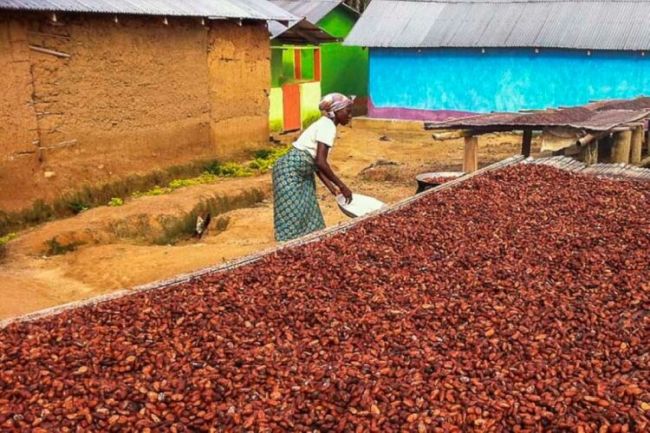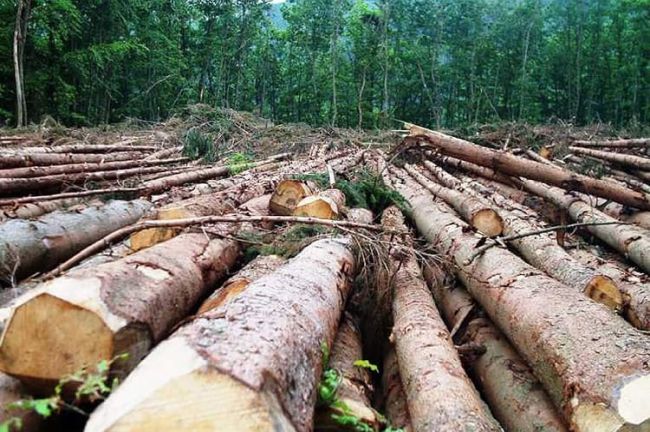Ghana's agriculture sector is dominated by smallholder farmers who predominantly produce crops. 33% of Ghana's workforce is directly employed in the agriculture sector. There are many investment opportunities in Agriculture in Ghana for various sub-sectors under the industry.
GENERAL OVERVIEW
The regulators of this sector include the Ministry of Food and Agriculture, the Ministry of Fisheries and Aquaculture and various agencies under these government ministries. Ghana's agricultural produce is categorized into four sub-sectors.
- The first subsector is Crops. Crops are further classified into industrial crops, which include Cocoa, oil palm, coconut, coffee cashew and rubber. Ghana is the second largest producer of Cocoa in the world. The second category of crops produced in Ghana is starchy staples, cereals and legumes, which include cassava, cocoyam, yam, plantain, millet and groundnut. The third category of crops produced in Ghana is fruits and vegetables, which include banana, pineapple, citrus, mango, pepper, tomato, eggplant, onion and pawpaw.
- The second subsector is livestock production. Ghana produces in large proportions poultry, including chicken, duck and turkey. In addition, Ghana also produces cattle, sheep, goats and pigs.
- The third subsector is fisheries and aquaculture. Fish accounts for 60% of Ghana's protein requirements. Marine fishing accounts for a significant part of Ghana's fish supply.
- The fourth agricultural subsector is Forestry and logging. Ghana has about 8 million hectares of forested land. Of this, 7.7 million hectares are primary forests, and 290,000 hectares are planted forests. In addition, several companies are engaged in the export of primary timber billets.
CROPS
- Ghana is amongst the top producers of certain crops in the world. Ghana ranks as the fourth largest producer of cassava in the world. Seventy per cent of Ghanaian smallholder farmers are into the production of cassava. Yam, a popular root crop in many parts of the world, is produced in large quantities in Ghana. Ghana is the second largest producer of yam globally, ranking only behind Nigeria. Ghana also produces pineapples, groundnuts, coconuts, oil palm and several other crops in large quantities.
- Apart from the production of crops, Ghana imports cereals and significant quantities of rice. For example, in 2020, Ghana imported 1.3 million tonnes of rice paddy, 873,000 tonnes of wheat, 84,333 tonnes of soybeans and 22,312 tonnes of malt. Fruits and vegetables are also imported into Ghana in large quantities. Examples are apples, garlic and tomatoes.
COCOA PRODUCTION
- Ghana is the second largest producer of cocoa in the world. The government-owned Ghana Cocoa Board (COCOBOD) is the regulator, marketer and price setter of cocoa in Ghana. Ghana receives a significant amount of foreign exchange through cocoa exports. In 2021 Ghana received US$2.85 billion from the export of cocoa products. This represents 19% of Ghana's total export revenue.

LIVESTOCK AND ANIMAL PRODUCTION
- A wide range of livestock and game are produced in Ghana. These included poultry, cattle, goat and sheep. In 2020, 73,000 tonnes of chicken were produced in Ghana.
- Ghana imports significant quantities of chicken and other meat products. Chicken constituted around 84% of Ghana's total meat imports in 2020.
FISHERIES AND AQUACULTURE
- Sixty per cent of Ghana's protein needs are obtained from fish. Marine fishing is dominant in Ghana and contributes to 80% of Ghana's total fish production. Depleting fish stock in Ghana's waters has led to the need for significant investment in aquaculture.
- Ghana imports significant quantities of fish. In 2018 Ghana imported 193,690 metric tonnes of fish and exported 73,622 metric tonnes of fish.
FORESTRY AND LOGGING
- Ghana's total forested land is approximately 8 million hectares in size. Ghana exports timber billets and exported a total of 25,890 cubic metres of timber billets in 2020.

REGULATORS
- Ministry of Food and Agriculture
- Ministry of Fisheries and Aquaculture
- Forestry Commission
- Environmental Protection Agency
- Food and Drugs Authority
- Fisheries Commission
- Ghana Cocoa Board
- Ghana Irrigation Development Authority (GIDA)
KEY ATTRACTION HIGHLIGHTS
- TAX INCENTIVES
Several tax incentives are granted to companies that invest in agriculture in Ghana. These include 5-10 year tax holidays and concessionary corporate income tax rates. In addition, tax losses for companies that invest in the agriculture sector can be carried over for up to five years.
- HUMAN RESOURCES
Ghana has one of the highest literacy rates in West Africa, with a very youthful population. Relatively low labour costs are attractive for setting up agricultural ventures in Ghana.
- LAND ACQUISITION AND MANAGEMENT
Land ownership is heavily regulated by law, and there is relatively easy access to farmlands in Ghana. Ghana's Ministry of Food and Agriculture has prepared a Model Lease Agreement for large-scale farmers, which is available for large-scale farmers to use.
Investment Opportunities in Agriculture in Agriculture In Ghana
Large tracts of arable land are available for agricultural purposes in Ghana. Ghana has 13.6 million hectares of agricultural land available for cultivation. However, only 50% of this is under cultivation and irrigation.
- POULTRY AND FISH FEED EQUIPMENT MANUFACTURING
Poultry and fish feed is not produced in commercial quantities in Ghana because of the unavailability of the requisite machinery. There are good opportunities for the manufacturing of this equipment.
- AQUACULTURE PRODUCTION
There are opportunities for investment in using modern technology in the aquaculture industry to reduce waste and inefficiencies and increase revenue.

- RICE PRODUCTION
There are opportunities for investment in rice production, especially in relation to commercial rice farming.
- COCOA PROCESSING
There are opportunities in this sector in the areas of actions to increase cocoa plant health and fertility sustainably, the development of irrigation systems for cocoa farms, and rehabilitation of aged and diseased cocoa crops.
- SHEA BUTTER PROCESSING
Due to the increase in demand for Shea Butter globally, it will be very lucrative for you to invest in the production of shea butter.
- CLIMATE-RESISTANT SEEDS AND TECHNOLOGY
The effects of climate change have impacted rain patterns and have distorted the prediction of planting seasons for farmers in Ghana. Investment in the production of resistant seeds and other climate-resilient technologies are lucrative opportunities in Ghana.
The content of this article is intended to provide a general guide to the subject matter. Specialist advice should be sought about your specific circumstances.

